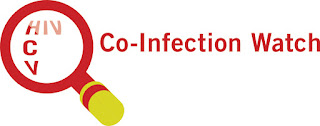On September 23rd and 24th, "Magnifying How ADAP Provides Treatment For People Living With HIV/AIDS" took center stage at the ADAP Advocacy Association's 9th Annual ADAP Conference in Washington, DC. The conference convened numerous ADAP stakeholder groups — including patients, service providers, health departments, pharmacies, pharmaceutical companies, and advocacy organizations — to discuss the current and emerging public policy issues confronting the AIDS Drug Assistance Program (ADAP), as well as exchange ideas and develop strategies for effective patient self-advocacy.
The conference kicked off with some exciting news about the organization's flagship program; the ADAP Directory. The ADAP Directory — which was launched in 2014 — takes an innovative approach to linking people living with HIV-infection to the information, resources, medical care, and treatment options. Now, it offers an interactive feature called the ADAP Eligibility Calculator powered by PillPack.
The opening keynote was delivered by Dr. Mike Magee, President of Positive Medicine, who is a longtime friend of the ADAP Advocacy Association (Editor's Note: It was 2007, when Dr. Magee delivered the opening keynote at the organization's first annual conference). His remarks, "Blending Positive Leadership and Advocacy: A Case for Advanced Professionalism," drew heavily from a book published by his son, Michael, some years earlier, entitled “Emancipating Pragmatism: emerson, jazz, and experimental writing.” Dr. Magee's keynote conveyed several key points. Among them are positive leadership, and islands of common stewardship. To read Dr. Magee's recap of his experience in his blog post at Health Commentary, CLICK HERE.
The conference offered up seven panel discussions, each playing an important role in magnifying how ADAP provides treatment for people living with HIV/AIDS. The conference leveraged an Oprah-style format designed to promote a “conversation” rather than a traditional presentation-type session; therefore, the panelists were encouraged to speak from the heart rather than using scripted remarks/presentations.
The conference panels included:
- HIV & Aging: Building a Focus on Healthy Aging for Older Adults Living With HIV/AIDS
- Affordable Care Act: AIDS Drug Assistance Programs & Qualified Health Plans
- Affordable Care Act: Marketplace Cost Sharing & Barriers to Healthcare
- Linkages to Care: Social Workers & HIV Community Resources
- Linkages to Care: 340B Program & HIV Continuum of Care
- HIV & Marginalized Communities: Delivering Culturally Competent Care
- Co-Infection: Integrating HCV Services into HIV Prevention/Care Settings
The conference attendees were provided an abundance of supporting materials, which can be downloaded online here. By the time the conference had concluded there were numerous take-aways that will be orchestrated by the ADAP Advocacy Association over the coming weeks and months.




